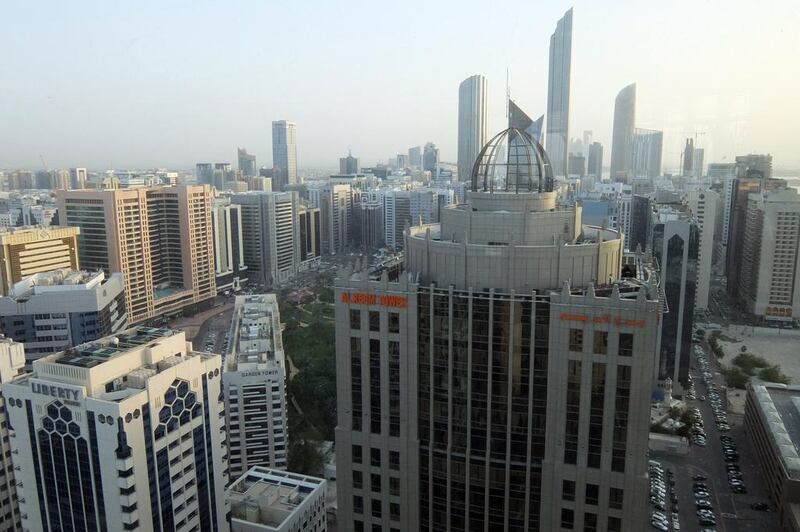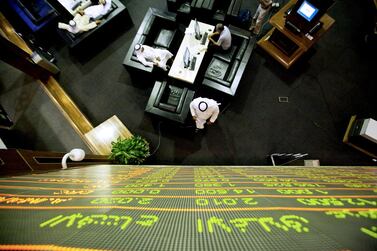The UAE’s economic growth will accelerate this year, spurred by increased private sector credit, higher inward investment, government stimuli and the approaching Expo 2020 event in Dubai, the International Monetary Fund said in a new report.
“Growth momentum is set to strengthen in the next few years,” the Washington-based lender said in a report on Friday night. “Inflation is expected to remain low, notwithstanding the introduction of value added tax (VAT) earlier in 2018.
“Although nonperforming loans rose during the slowdown, banks remain liquid and well capitalised.”
The country’s non-oil growth is projected to rise to 3.9 per cent in 2019 and 4.2 per cent in 2020, with overall real GDP growth including oil and non-oil growth expected to reach 3.7 per cent for 2019/20, according to the IMF’s report.
This is a significant uplift from a projected 2.9 per cent last year and 0.7 per cent contraction in 2017 – when the knock-on impact of low oil prices took its biggest toll on regional economies.
The report is the outcome of the IMF’s latest economic outlook consultation with the UAE in November.
With oil prices rising to above $80 per barrel last September – a three-year record high after they plummeted to below $30 in 2014 – and now hovering at around $60 per barrel, the UAE’s hydrocarbons sector has seen prospects improve as output ticks up.
Higher oil prices have had a positive impact on the UAE’s current account surplus, which nearly doubled last year to 6.9 per cent of GDP as imports remained flat, boosting its external position. That surplus is expected to rise further to nearly 8 per cent of GDP in 2019 owing to heftier oil revenues, although it may settle at a lower level in the medium-term as oil prices soften with rising production, the IMF’s report noted.
Meanwhile, fiscal easing is taking place in the UAE and other GCC economies, which is facilitating economic growth. Abu Dhabi announced a Dh50 billion stimulus package last year to expand the private sector and encourage higher levels of inward investment, and it is set to be rolled out in 2019.
The Expo 2020 Dubai mega-event, to be staged over a six-month period from next October, is creating new investment opportunities as well as driving tourism and construction activity.
At the same time, ramped up structural reforms and business-friendly legislation is boosting the UAE’s medium-term prospects.
“As private sector activity picks up and stimulus measures are phased out, fiscal consolidation is expected to resume, to ensure sufficient saving of oil wealth for future generations,” the IMF said.
“The overall fiscal balance is projected to turn to a surplus next year on higher oil prices and remain positive over the medium term.”
Debt to GDP levels – which remained robust even in the past three years – are also improving, noted the IMF. External debt as a percentage of GDP is forecast to shrink to 64.2 per cent, from 73.5 per cent in 2017.
Downside external risks including geopolitical tensions, rising global protectionism and greater volatility in emerging markets have increased in recent months, the report noted.







